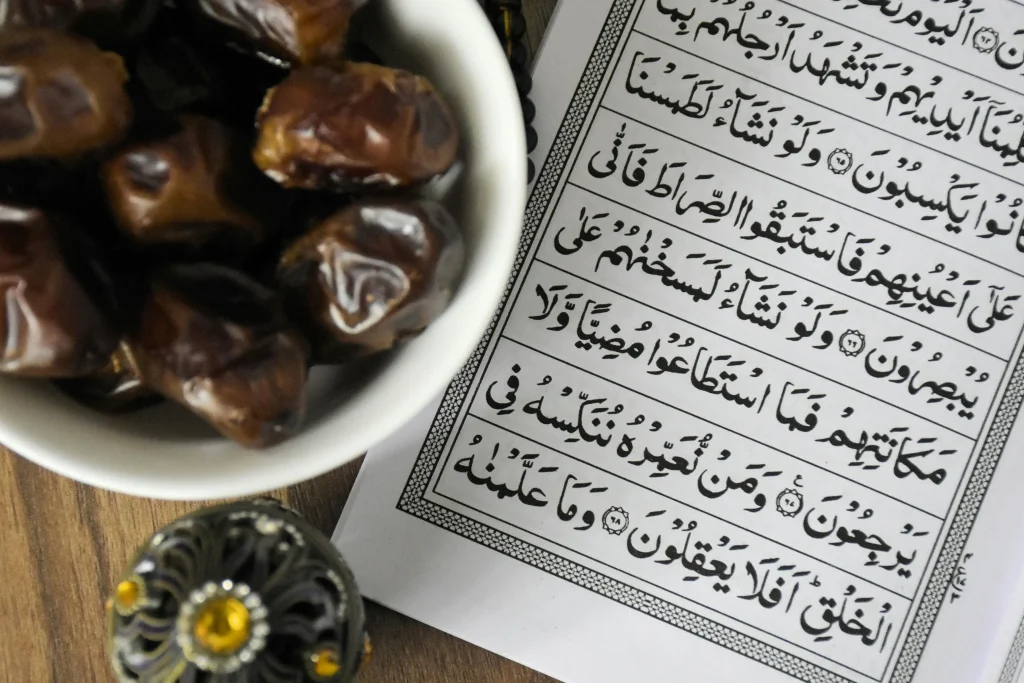Introduction
The holy month of Ramadan is a time of fasting, reflection, and spiritual growth for Muslims worldwide. During Ramadan fasting, meal timings and eating habits change significantly. To stay healthy and energized throughout the day, it’s crucial to choose the right Suhoor foods that provide long-lasting energy and prevent dehydration.
If you want to complete all your fasts smoothly, follow a balanced and nutritious Suhoor meal plan. Here’s a guide on the best foods for Suhoor and what to avoid to maintain your health during Ramadan fasting.
1. Stay Hydrated – Drink Enough Water
Dehydration is one of the biggest challenges during fasting, especially in hot weather. To prevent dehydration during Ramadan, drink at least half a liter of water at Suhoor. You can drink more if needed, but never less.
Tips for Staying Hydrated:
- Drink plain water instead of sugary drinks.
- Avoid caffeinated beverages like tea and coffee, as they cause dehydration.
- Eat water-rich fruits to help retain hydration.
2. Eat Energy-Boosting, Protein-Rich Foods
Protein helps keep you full for longer and provides sustained energy. Including high-protein foods at Suhoor will prevent hunger pangs and maintain strength throughout the day.
Best Protein Sources for Suhoor:
- Eggs – Rich in protein and essential nutrients.
- Fish and lean meat – Helps maintain muscle strength.
- Milk and yogurt – Provides protein and hydration.
3. Include Water-Rich Fruits for Hydration
Eating water-rich fruits at Suhoor keeps you hydrated and refreshed throughout the day. These fruits contain essential vitamins and minerals that prevent fatigue.
Best Fruits to Eat at Suhoor:
- Watermelon – High water content and refreshing.
- Oranges – Rich in Vitamin C and hydration.
- Pineapple – A great source of natural sugar and fluids.
4. Avoid Tea and Coffee at Suhoor
☕ Many people drink tea or coffee in the morning, but consuming them at Suhoor can cause dehydration due to their caffeine content. Instead, opt for herbal tea or warm milk.
5. Stay Away from Dry and Processed Carbohydrates
Bread, biscuits, and processed carbs may provide quick energy but lead to dehydration and fatigue later in the day. Instead, choose complex carbs like oats, whole grains, and brown rice for longer-lasting energy.
6. Cut Down on Sugary Foods
Excess sugar causes an energy spike followed by a crash, making you feel weak and tired. Avoid sweets and desserts at Suhoor to maintain steady energy levels.
7. Avoid Heavy, Greasy, and Fried Foods
Eating heavy meals like Biryani, Polao, or Khichuri at Suhoor can cause bloating and discomfort throughout the day. Instead, opt for light and nutritious foods that are easy to digest.
8. Eat Dates for Sustained Energy
Dates are a superfood that provides essential nutrients, fiber, and natural sugar. Eating two dates at Suhoor will help maintain energy throughout the fasting hours.
Final Thoughts
Maintaining a healthy diet during Ramadan is key to feeling strong and energized while fasting. By following these Suhoor meal tips, you can prevent dehydration, avoid hunger pangs, and stay active throughout the day.
Summary of the Best Suhoor Foods:
✅ Drink plenty of water
✅ Eat protein-rich foods like eggs, fish, and yogurt
✅ Include water-rich fruits like watermelon and oranges
✅ Avoid caffeine, processed carbs, and excessive sugar
✅ Stay away from heavy, greasy, and fried foods
✅ Eat dates for sustained energy
By making smart food choices at Suhoor, you can enjoy a healthy Ramadan and complete your fasts with ease.

